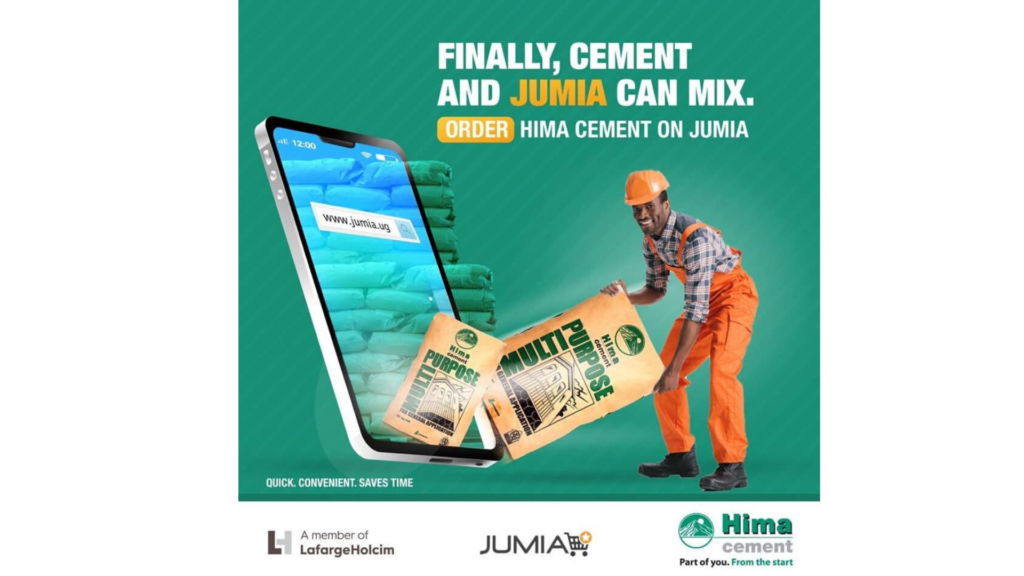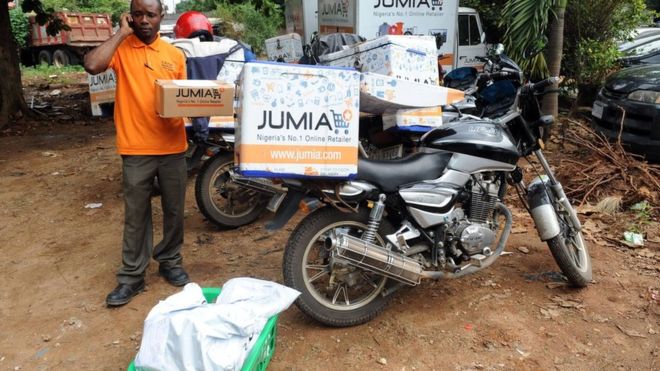News
Jumia’s Francis Dufay: ‘We have what it takes to beat Temu and Shein’ (The Africa Report)
May 16, 2025Company News

The head of the African e-commerce platform says he isn’t worried about competition from the two Chinese giants, and finally offers a timeline for his company’s profitability.
When will Jumia finally turn profitable? It’s a saga that has held observers and financial markets in suspense ever since the e-commerce platform was listed in 2019. Francis Dufay, CEO of Jumia since 2022, now intends to provide an answer.
After reporting revenues of nearly $161m in 2024 – a 7% annual decline – and negative EBITDA slightly above $54m, the company announced revenues of just over $36m for the first quarter of this year, down 18% at constant exchange rates. Several other financial indicators also worsened, including total transaction volume (GMV), cash reserves and operating losses.
These figures might suggest profitability is far off, but Dufay insists otherwise, speaking to us ahead of a visit to Lagos to launch Jumia Delivery, the group’s third-party logistics service.
The Africa Report: Jumia’s Q1 2025 financial results are disappointing. Yet you’re optimistic, committing to profitability by early 2027. What drives your confidence?
Francis Dufay: Most headline numbers look poor, but key indicators such as increased orders and growth in Kenya and Nigeria are positive. We’re trying to isolate two main impacts in our year-over-year comparisons. Firstly, currency devaluations: this is the last quarter visibly affected by these, as the Egyptian pound and Nigerian naira dropped about 40% around February and March last year.
Our business environment is stabilising. Local currencies are recovering, macroeconomic conditions are improving, and inflation is slowing
For example, our March 2025 figures aren’t negative compared to March 2024. Orders grew by 21% and GMV by 16%, aligning with our financial indicators.
Secondly, in late 2023 and early 2024, we had substantial wholesale business in Egypt. At that time, we imported and sold goods locally due to severe dollar shortages. Now, Egypt’s market has stabilised, significantly reducing our wholesale activities. This sharply lowered Egypt’s GMV, affecting overall group revenues.
This wholesale trade boosted last year’s gross margin because we sold at high local prices, offset by currency losses when repatriating dollars. The result was an elevated gross margin and EBITDA, balanced out by exchange-rate losses. Our net losses before taxes remained stable. This complexity makes our overall financial progress difficult to grasp.
Excluding these anomalies, our GMV grew 10% in dollars. Our core consumer business is strong, with orders up 21%, GMV up 10% and customer numbers rising 15%. These indicators have aligned positively for the first time, signalling renewed growth.
Are issues around inflation and currency devaluations in key markets like Nigeria and Egypt behind you now?
Yes, currency-related issues are behind us. Both the Egyptian pound and the naira have stabilised, with the naira even strengthening slightly. The gap between official and real exchange rates has closed, a positive sign. Egypt received billions in external funding, stabilising conditions for several months at least.
The Egyptian market seems challenging. Have you considered exiting?
Egypt’s macroeconomic environment is indeed difficult. However, it’s a significant market of 100 million people where our market share remains small. Although competition from Noon and Amazon is tough, we see opportunities among the lower-middle classes, similar to markets we know elsewhere.
Egypt’s GDP per capita is about $3,500 compared to Côte d’Ivoire’s $2,500, reflecting similar economic inequalities. This demographic is our strength, and market penetration potential remains huge.
You’ve set early 2027 as your profitability target. Why such certainty?
We’re fully aware we cannot reverse course after publicly stating this goal. As a publicly traded company on the NYSE, we must be certain about fulfilling these commitments; otherwise, it would constitute serious financial misinformation.
The geopolitical and macroeconomic situation, particularly the paused US-China trade war, is unstable. Why commit now?
Paradoxically, our business environment is stabilising. Local currencies are recovering, macroeconomic conditions are improving, and inflation is slowing. This helps political stability and purchasing power in our markets.
In Nigeria, our order volumes are similar to Côte d’Ivoire’s, but GMV remains lower, illustrating the market’s under-penetration
We sell Asian products to African consumers, so US-China issues have little direct impact. They might even benefit us by creating surplus Asian goods that we can channel efficiently. The core challenge of African e-commerce has always been insufficient supply.
What are the key milestones towards profitability?
Profitability hinges on two factors: sales volume and costs. We’re now tackling both simultaneously.
On costs, we launched a plan in late 2024 to further reduce overheads. We slightly increased seller commissions and certain service prices, such as warehousing, in growth markets.
We sharply reduced logistics expenses by renegotiating contracts, reducing delivery frequencies, and improving warehouse efficiency. Technological costs, such as software licences and data hosting fees, have also been renegotiated downward.
These measures aren’t visible in Q1 figures, as effects only started appearing in March, with tech licences renewing later in the year.
Currency-related issues are behind us. Both the Egyptian pound and the naira have stabilised, with the naira even strengthening slightly
On growth, we’re currently achieving a 20% increase in orders and near that level in GMV. Further growth can be unlocked with targeted marketing. All these steps allow us to confidently predict profitability by early 2027.
Which market has the greatest growth potential?
In Nigeria, our order volumes are similar to Côte d’Ivoire’s, but GMV remains lower, illustrating the market’s under-penetration. We’ve operated effectively in Nigeria only for about a year; we’re at the beginning of the story there.
If macroeconomic conditions are stabilising, what’s your biggest remaining challenge?
Internally, it’s execution speed. Externally, it’s managing unpredictable regulatory and fiscal changes.
Have you noticed changes in China’s export strategy towards Africa?
No direct effect so far. However, sales from our Chinese sellers internationally surged by 61%, representing a third of our total product sales – partly due to improved supply chain management and vendor experience.
Temu and Shein entered Nigeria, Morocco and South Africa last year. Could these aggressive competitors destabilise you?
Temu and Shein have significantly disrupted Europe, the US, and several emerging markets. While we’ve seen them enter Nigeria and Morocco, we already have a strong brand and a more efficient logistics network. We can compete on price with our own range of Chinese goods, and we sell categories – such as home appliances – that they don’t offer.
Wholesale trade boosted last year’s gross margin because we sold at high local prices, offset by currency losses when repatriating dollars
Additionally, just as President Donald Trump ended US customs exceptions for small parcels, many African countries are introducing laws closing similar loopholes or requiring foreign sellers to register for tax purposes.
Uganda and Côte d’Ivoire have passed laws requiring foreign sellers to register with local tax authorities. Over time, these changes will level the playing field and protect local players.
Read the original article on the africa report
About Jumia
Jumia is a leading e-commerce platform in Africa. Our marketplace is supported by our proprietary logistics business, Jumia Logistics, and our digital payment and fintech platform, JumiaPay. Jumia Logistics enables the seamless delivery of millions of packages while JumiaPay facilitates online payments and the distribution of a broad range of digital and financial services.
Follow us on, Linkedin Jumia Group and X @Jumia_Group
For more information about Jumia:
Abdesslam Benzitouni
[email protected]


